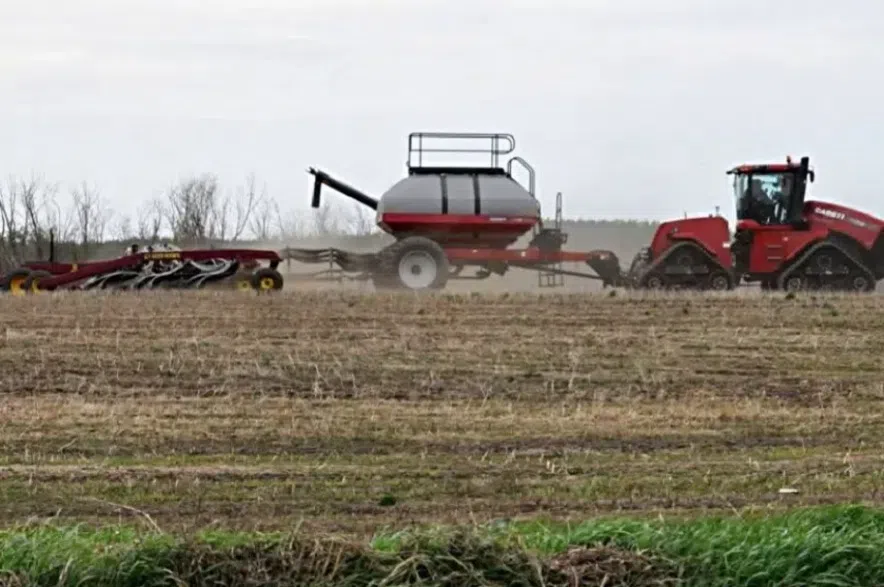After some much-needed rain, it’s now time for farmers to begin seeding.
According to the Government of Saskatchewan’s first crop report of the 2024 growing season, roughly 12 per cent of the 2024 crop has been planted.
But while the rain was welcomed by many farmers, it has left some a bit behind schedule when it comes to seeding. The 10-year average for this time of year is 20 per cent.
Ian Boxall, president of the Agricultural Producers Association of Saskatchewan (APAS), said farmers are okay with that trade.
“I think we’ll take the late start for the conditions we have,” said Boxall.
Field peas are the furthest ahead right now, with 25 per cent of this year’s crop already in the ground. Next are lentils (23 per cent), chickpeas (21 per cent) and durum (20 per cent).
And while the moisture slowed down seeding in some regions, it did improve topsoil moisture levels. The levels in cropland across Saskatchewan for the period from April 30 to Monday were rated at eight per cent surplus, 79 per cent adequate, 12 per cent short and one per cent very short. Topsoil moisture in pastures was reated at three per cent surplus, 70 per cent adequate, 22 per cent short and five per cent very short.
“With calving almost complete, many livestock producers are moving their cattle out to pasture,” the report read.
“When the weather allows, producers will be back in the fields spraying and seeding throughout the province. Producers are reminded to be safe during their field activities and while transporting equipment across or alongside roadways.”
Major merger should be cause for hesitation: Boxall
Boxall joined the Evan Bray Show on Wednesday to discuss the Viterra-Bunge merger.
He said he struggles to see the benefit for producers.
“I think farmers are hesitant, and I think taxpayers and the government should be hesitant,” said Boxall.
“If the big corporate guys are saying ‘oh no trust us, trust us, this is good for the farmers,’ we’re not there. I don’t think we are in the position to trust multi-million-dollar companies.”
APAS recently released a report saying there will be significant economic harm done to producers if the merger goes through.
Boxall said Bunge doesn’t agree with that report.
“They weren’t happy that we weren’t willing to share the data,” said Boxall. “But, you know, a multi-million-dollar corporation, they should be able to replicate the data and figure it out for themselves.”
Boxall said he feels like the merger would stack the deck against producers in Saskatchewan.











